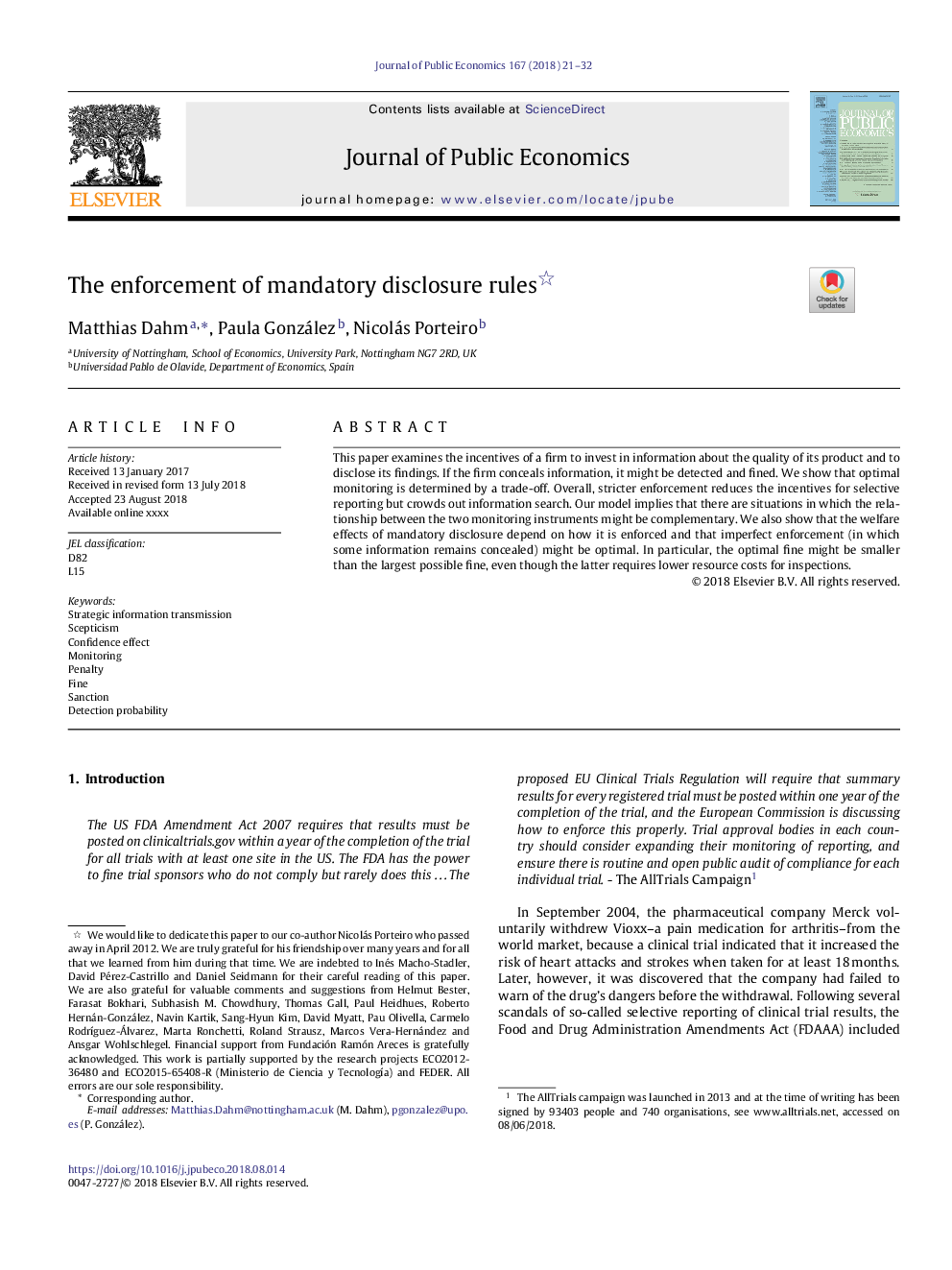| Article ID | Journal | Published Year | Pages | File Type |
|---|---|---|---|---|
| 10153745 | Journal of Public Economics | 2018 | 12 Pages |
Abstract
This paper examines the incentives of a firm to invest in information about the quality of its product and to disclose its findings. If the firm conceals information, it might be detected and fined. We show that optimal monitoring is determined by a trade-off. Overall, stricter enforcement reduces the incentives for selective reporting but crowds out information search. Our model implies that there are situations in which the relationship between the two monitoring instruments might be complementary. We also show that the welfare effects of mandatory disclosure depend on how it is enforced and that imperfect enforcement (in which some information remains concealed) might be optimal. In particular, the optimal fine might be smaller than the largest possible fine, even though the latter requires lower resource costs for inspections.
Keywords
Related Topics
Social Sciences and Humanities
Economics, Econometrics and Finance
Economics and Econometrics
Authors
Matthias Dahm, Paula González, Nicolás Porteiro,
